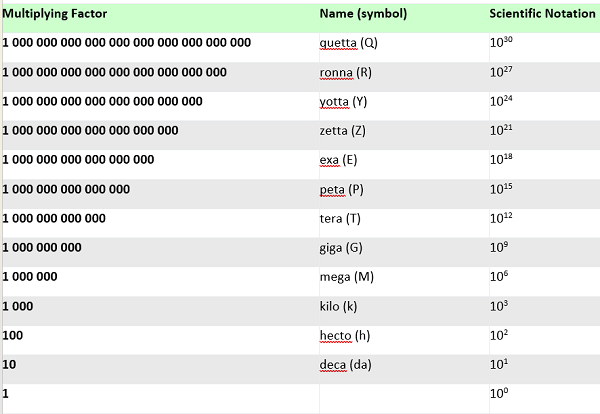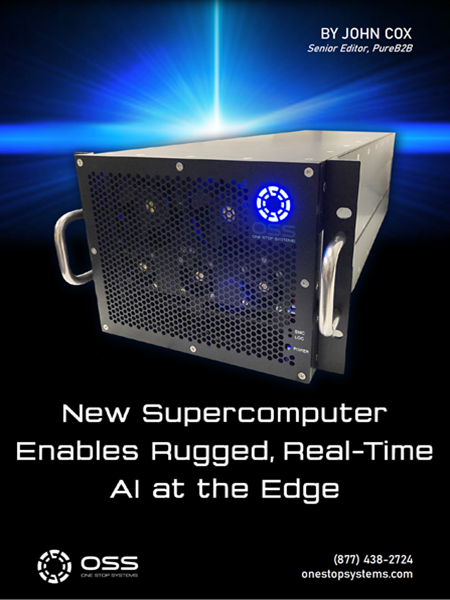
source: NPL
Now that the exascale (a billion billion, or 1018, calculations/second) computing barrier has been surmounted, and with discussion of zettascale-class supercomputers already in the wind, the General Conference on Weights and Measures (CPGM) has decided to add new prefixes used within the International System of Units (SI) to denote even greater compute power and data volumes.
According to a post on the National Physical Laboratory (NPL), the UK’s National Metrology Institute (NMI), the decision by the CPGM, which the NPL said was spearheaded by laboratory’s Head of Metrology Dr. Richard Brown, “means that four new prefixes (two at the top end of the SI range and two at the bottom end of the SI range) can now be used to express measurements worldwide. This is the first expansion to the SI prefix range since 1991,” the NPL said.
The new names for very large numbers are:
- ronna (symbol R) for 1027 or 1 000 000 000 000 000 000 000 000 000
- quetta (symbol Q) for 1030 or 1 000 000 000 000 000 000 000 000 000 000
They are joined by their tiny counterparts:
- ronto (symbol r) for 10−27 or 0.000 000 000 000 000 000 000 000 001
- quecto (symbol q) for 10−30 or 0.000 000 000 000 000 000 000 000 000 001
“The change was largely driven by the growing requirements of data science and digital storage,” the NPL said, “which is already using prefixes at the top of the existing range (yottabytes and zettabytes, for expressing huge quantities of digital information). The prefixes for very small numbers are useful for quantum science and particle physics. However, these can be used with any SI unit, for example in the future we can be expected to talk about ronnametres and quettagrams.”
Brown told the Associated Press that R and Q were selected for the new prefixes because they had not already been put in use.
“It was high time. [We] need new words as things expand,” Brown said. “In just a few decades, the world has become a very different place.”



